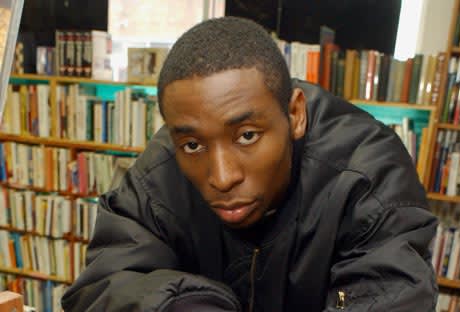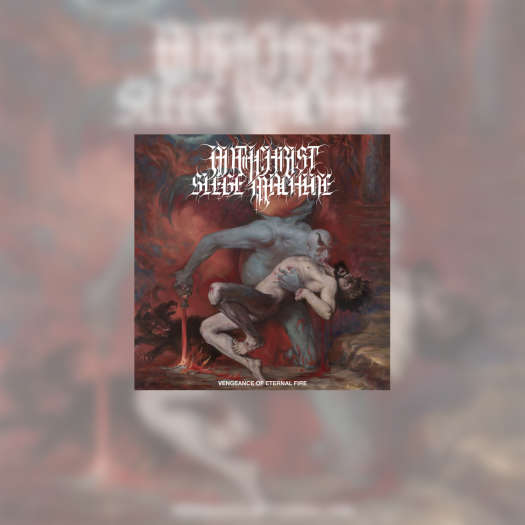When he took office in 1997, British Prime Minister Tony Blair prophesised the dawn of "third way" politics, placing himself in the middle of the ideological spectrum. Since his election, Blair has tipped decidedly to the right, but for all his empty centrist rhetoric, his story presents an object lesson for the world of hip-hop, where the divisions between left and right are being healed by a new breed of producers.
Rap has long been a realm divided, with underground purists shunning their mainstream counterparts' conspicuous consumption and trunk-rattling beats. Hemmed in by the face-saving need to "keep it real," leftfield beatmakers have lagged behind their commercial brethren for the last half-decade, sticking to the boom-bap script and allowing synth-wielding futurists to define the new sound of the street.
For too long, mouth-watering beats from the likes of Mannie Fresh and the Neptunes have gone to waste on senseless MCs. However compelling their delivery, fire spitters like Juvenile and Mystikal appeal only to our basest desires, and while they serve an important function in the clubs, one has to wonder when hip-hop will produce an anthem with something more to say than "back that azz up."
Well, that time has come, in the form of uplifting tracks by Danger Mouse & Jemini ("Take Care of Business"), Little Brother ("Speed") and Kanye West ("Jesus Walks"). Neither beholden to restrictive underground mores nor appealing to the lowest common denominator, these artists have settled in the middleground, reaffirming the soul sample's rightful place in the hip-hop discourse. Abused through the late 90s by pale imitators of DJ Premier's cut/sample/loop style, the soul phrase has regained its vitality, anchoring hits by both underground cats (see Atmosphere's "Trying To Find A Balance") and big-timers (Jay-Z's "Girls, Girls, Girls").
For all his false renown as a mere bling rapper, Jigga is responsible for popularising the sped-up vocal snippet, having selected neo-bap beatmakers West and Just Blaze to soundtrack his 2001 opus, The Blueprint. Hova also figures prominently in the rise of Danger Mouse, whose Beatles-fuelled remix of the MC's swan song yielded The Grey Album, the latest in a line of Jigga rerubs proffered by underground beatsmiths.
The notoriety afforded DM's remix project raised the profile of last year's stellar Ghetto Pop Life, his slept-on collaboration with New York MC Jemini. That album sounded not so much old-school as it did timeless, fuelled by Jem's octave-hurdling flows and DM's pocket symphonies.
Bolstered by a remix project of his own (a reworking of Nas's oeuvre, God's Stepson) Little Brother's beatmaker 9th Wonder also has a Jay-Z connection, having contributed "Threat" to Hova's swan song, The Black Album. On Little Brother's 2002 album, The Listening, the producer split the difference between old and new, rinsing gritty samples through sophisticated software programs to luxurious ends. Of all the middle-grounders, 9th Wonder is the most retro-minded, having named his trio in honour of 90s-era legends like A Tribe Called Quest and De La Soul, whom he reveres as older siblings.
In retrospect, hip-hop's much-ballyhooed golden era (1991 to 94) owes its mystique as much to the inclusive mindset of its artists as to the enduring brilliance of the music they produced. To wit, that period saw Public Enemy co-headlining shows alongside Big Daddy Kane, a tour whose contemporary equivalent (say, Jay-Z and Dead Prez) seems unlikely or maybe not, for by providing beats to both Jigga and DP, Kanye West has become a healer of rap's divisions, a point affirmed on The College Dropout, when he declares that he's "the first nigga with a Benz and a backpack."
With no less an indie hero than Madlib collaborating with Busta Rhymes, the walls between the underground and the mainstream are falling down. So while the Neptunes' space-funk style has reached its saturation point as attested to by their recent Grammy nominations hip-hop seems safe in the hands of third-way producers whose beats are getting sold not to the highest bidder, but to the best MC. Like it or not, all this is thanks to Jay-Z.
Rap has long been a realm divided, with underground purists shunning their mainstream counterparts' conspicuous consumption and trunk-rattling beats. Hemmed in by the face-saving need to "keep it real," leftfield beatmakers have lagged behind their commercial brethren for the last half-decade, sticking to the boom-bap script and allowing synth-wielding futurists to define the new sound of the street.
For too long, mouth-watering beats from the likes of Mannie Fresh and the Neptunes have gone to waste on senseless MCs. However compelling their delivery, fire spitters like Juvenile and Mystikal appeal only to our basest desires, and while they serve an important function in the clubs, one has to wonder when hip-hop will produce an anthem with something more to say than "back that azz up."
Well, that time has come, in the form of uplifting tracks by Danger Mouse & Jemini ("Take Care of Business"), Little Brother ("Speed") and Kanye West ("Jesus Walks"). Neither beholden to restrictive underground mores nor appealing to the lowest common denominator, these artists have settled in the middleground, reaffirming the soul sample's rightful place in the hip-hop discourse. Abused through the late 90s by pale imitators of DJ Premier's cut/sample/loop style, the soul phrase has regained its vitality, anchoring hits by both underground cats (see Atmosphere's "Trying To Find A Balance") and big-timers (Jay-Z's "Girls, Girls, Girls").
For all his false renown as a mere bling rapper, Jigga is responsible for popularising the sped-up vocal snippet, having selected neo-bap beatmakers West and Just Blaze to soundtrack his 2001 opus, The Blueprint. Hova also figures prominently in the rise of Danger Mouse, whose Beatles-fuelled remix of the MC's swan song yielded The Grey Album, the latest in a line of Jigga rerubs proffered by underground beatsmiths.
The notoriety afforded DM's remix project raised the profile of last year's stellar Ghetto Pop Life, his slept-on collaboration with New York MC Jemini. That album sounded not so much old-school as it did timeless, fuelled by Jem's octave-hurdling flows and DM's pocket symphonies.
Bolstered by a remix project of his own (a reworking of Nas's oeuvre, God's Stepson) Little Brother's beatmaker 9th Wonder also has a Jay-Z connection, having contributed "Threat" to Hova's swan song, The Black Album. On Little Brother's 2002 album, The Listening, the producer split the difference between old and new, rinsing gritty samples through sophisticated software programs to luxurious ends. Of all the middle-grounders, 9th Wonder is the most retro-minded, having named his trio in honour of 90s-era legends like A Tribe Called Quest and De La Soul, whom he reveres as older siblings.
In retrospect, hip-hop's much-ballyhooed golden era (1991 to 94) owes its mystique as much to the inclusive mindset of its artists as to the enduring brilliance of the music they produced. To wit, that period saw Public Enemy co-headlining shows alongside Big Daddy Kane, a tour whose contemporary equivalent (say, Jay-Z and Dead Prez) seems unlikely or maybe not, for by providing beats to both Jigga and DP, Kanye West has become a healer of rap's divisions, a point affirmed on The College Dropout, when he declares that he's "the first nigga with a Benz and a backpack."
With no less an indie hero than Madlib collaborating with Busta Rhymes, the walls between the underground and the mainstream are falling down. So while the Neptunes' space-funk style has reached its saturation point as attested to by their recent Grammy nominations hip-hop seems safe in the hands of third-way producers whose beats are getting sold not to the highest bidder, but to the best MC. Like it or not, all this is thanks to Jay-Z.




